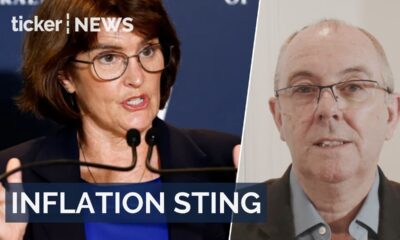Money
Boeing set to cut back on production of 787 Dreamliner

Money
U.S. markets mixed as tech slumps and Fed moves spark uncertainty
Mixed US equity results as tech stocks drop; market uncertainty rises amid Fed Chair change. Join Steve Gopalan’s insights on FX trends.
Money
Tech stocks and Bitcoin tumble amid market uncertainty and rising job concerns
Wall Street plummets as tech stocks and Bitcoin fall, raising concerns about job market and economic stability.
Money
S&P 500 dips as tech stocks struggle with AMD leading losses
S&P 500 declines as tech stocks sell off; AMD plummets, Microsoft stable, investors eye Alphabet’s upcoming earnings report.
-



 Ticker Views4 days ago
Ticker Views4 days agoElon Musk merges SpaceX and xAI to create solar-powered AI data centres
-



 Ticker Views4 days ago
Ticker Views4 days agoRBA interest rate increase explained – impact on Australians
-



 News2 days ago
News2 days agoU.S. ramps up Cuba aid as energy crisis deepens
-



 News3 days ago
News3 days agoAmazon launches AI tools to change film and television production
-



 News4 days ago
News4 days agoGrok continues generating sexualised images despite new safeguards
-



 Tech2 days ago
Tech2 days agoOpenAI and Anthropic launch faster, smarter AI tools for enterprise coding
-



 Shows4 days ago
Shows4 days agoAI in education: Transforming learning, challenges, and future skills
-



 News3 days ago
News3 days agoOil prices surge as U.S.-Iran tensions escalate






